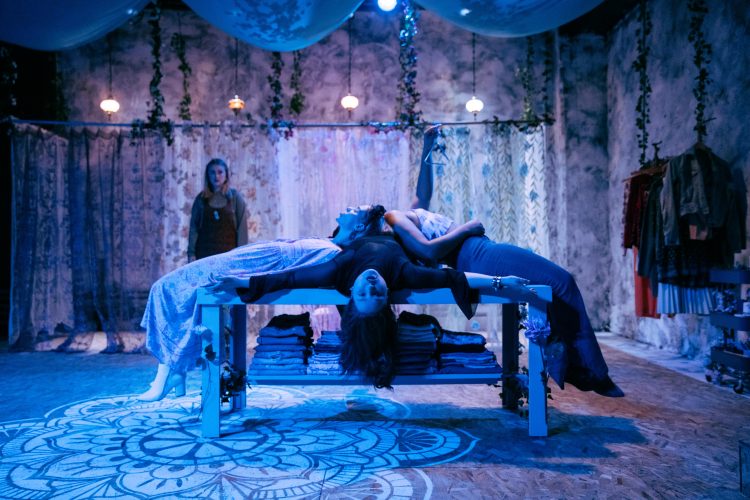Lily Houghton’s new play “Of the woman came the beginning of sin and through her we all die” starts strong with a promising premise and a talented cast. Unfortunately, it takes a problematic turn halfway through and drives on for far too long. As a thesis, this sounds harsh and categorical, which is why I chose to get it out of the way now rather than bury it under paragraphs of praise.
And there is ample ground for praise in Houghton’s imaginative writing, Kylie M. Brown’s focused direction, Brittany Vasta’s naturalistic yet surreal set, Alice Tavener’s strong costume choices and, above all, the fully invested performances of the cast, especially Sabrina Friedman-Seitz as the passive-aggressive and vulnerable Sweet Pea and Ianne Fields Stewart as the quipping and domineering Bluebell.
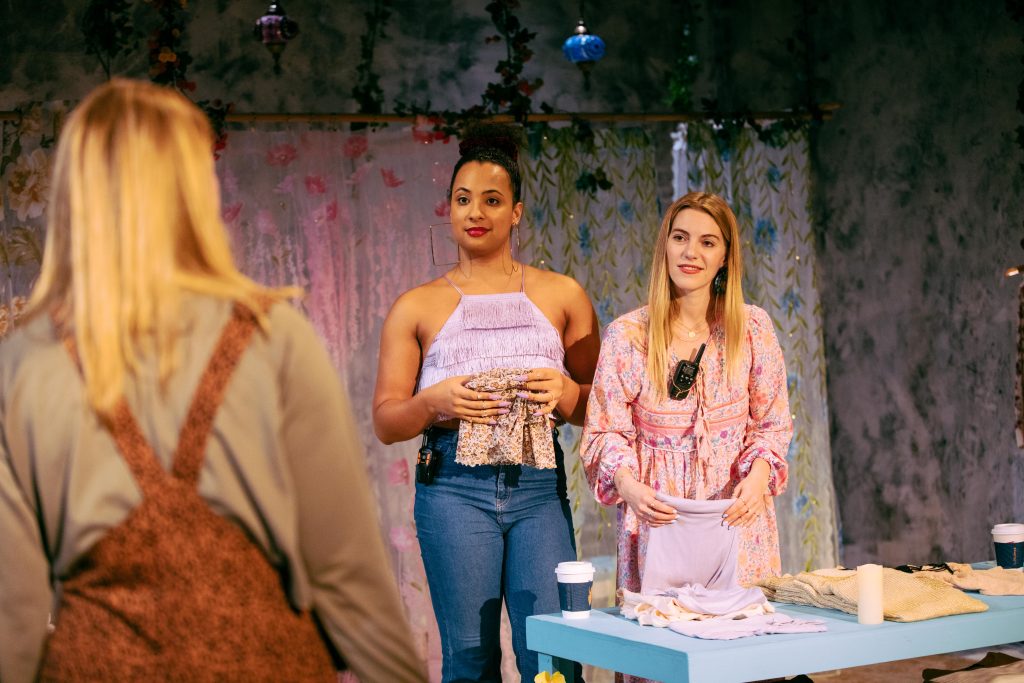
With a cast and crew this talented, it’s all the more surprising that the play takes the turn that it does.
The trip begins auspiciously enough by introducing the characters at their amusing best in their natural element, the basement of a fashion boutique, where they work by day and worship by night. The deity they worship is the goddess within. The audience is inducted into their cult—or coven or circle of friends, depending on who you ask—along with outsider and basement newcomer Pumpkin, played by Kirsten Harvey with a shy sincerity that quickly earns our empathy.
Pumpkin serves well as a device for introducing us to this strange yet credible underground religion. She asks some of the questions we would ask: Do you all love each other? Why are you doing this? Why are boyfriends forbidden?
So far so good. The problem, to my mind, arises halfway through, when Pumpkin suddenly and unexpectedly turns into someone completely different.
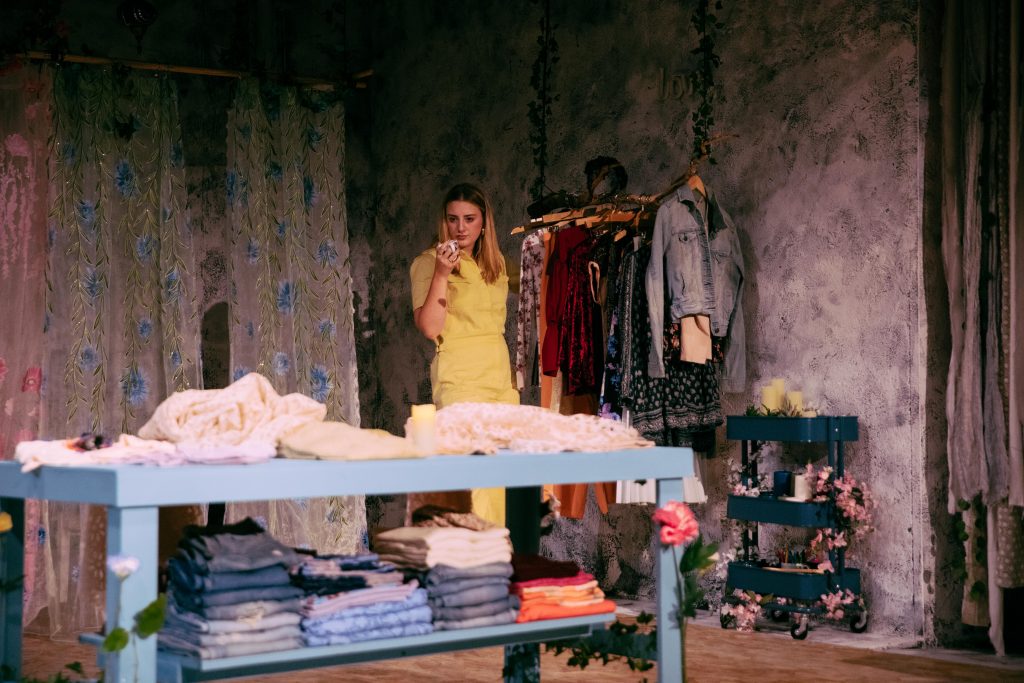
Why is this a problem? For one thing, there is nothing in her behavior up to that point to indicate who she really is, and so the change seems arbitrary, melodramatic rather than something we should have seen coming. For another, it too clearly serves the purpose of injecting conflict into the story. Once the characters have been introduced and the dramatic potential of their mildly clashing personalities has been exhausted, the play loses its drive. The problem, then, is ultimately a story problem, and Pumpkin’s transformation is only a symptom, or at best an attempted solution.
Conflict should be organic to the story, the seeds planted in the first lines only to blossom in the climax. Manufactured conflicts, by contrast, play like artificial flowers dropped from the rafters—a kind of reverse deus ex machina in which the deity descends to stir up strife.
The problem would almost certainly have been addressed if the first part of the play weren’t so side-splittingly funny. Houghton writes pitch-perfect dialog that effectively lampoons the attitudes and verbal tics of stereotypical millenials. But this is a game with diminishing returns in a play with only four main characters and a running time of well over ninety minutes.
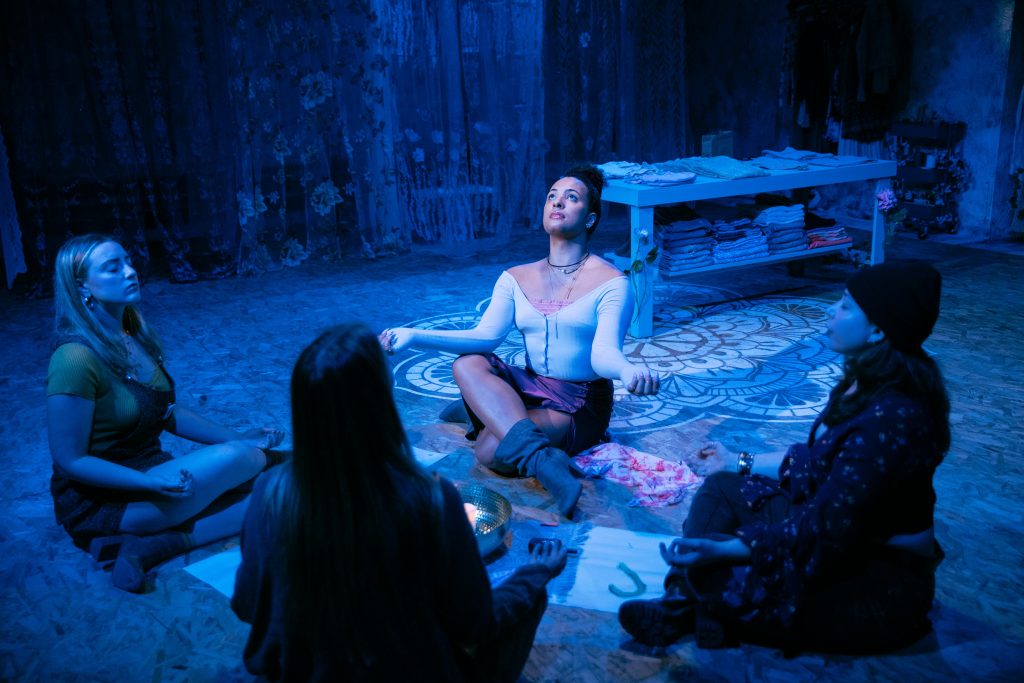
It would be fine if the play remained the farce it is set up to be, if the characters remained stereotypes tangled in a web of increasingly absurd circumstances. But Houghton also wants us to take these characters seriously, to listen as they catalog their inner states in long monologues rife with purple prose and pseudo-biblical repetition, to ponder the bible verse one of them improbably quotes verbatim to justify its use as the play’s prolix title.
Houghton’s commitment to the turn she takes is so complete and conscious that she even begins playing games with our reactions. After one especially long monologue with no apparent dramatic purpose, the speaker exits and is replaced by Carolyn Kettig’s beanie-wearing and monotone-talking Bleeding Heart. We steel ourselves for yet another monologue, when in walks the play’s only male character, a repugnant dude-bro aptly named “Man” and played to the hilt by Keith Caram. The relief in the air was palpable.
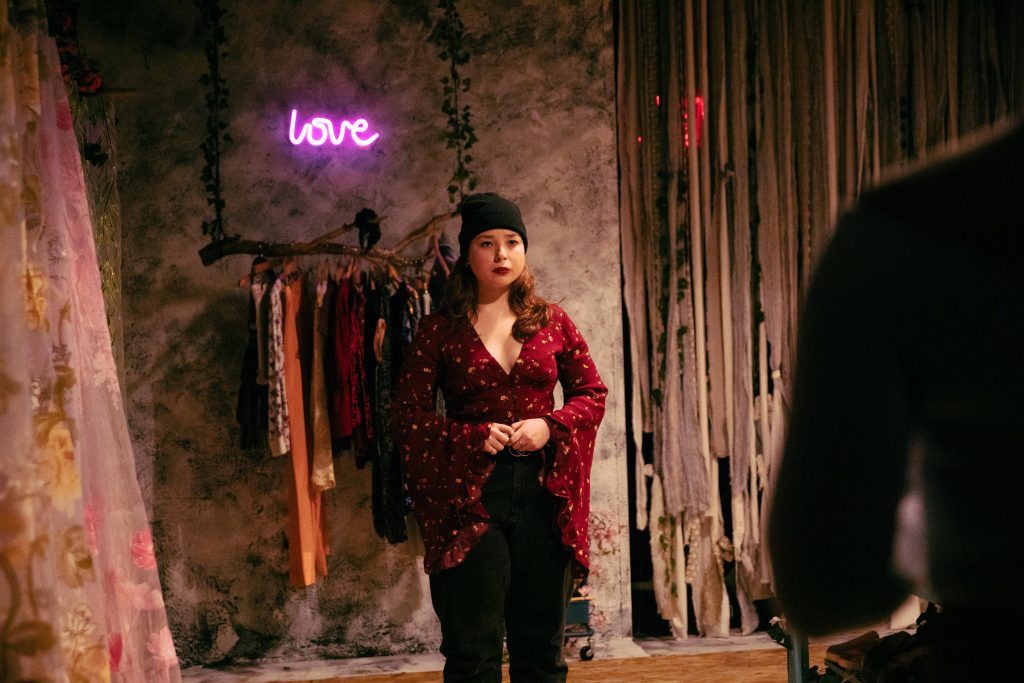
In other words, Houghton knows the monologues go on far too long, yet chooses not to cut them. This is an aggressive stance to take, and it calls for a proportionate response from a critic who believes that whatever else a play does—mystify, inspire, provoke, repel, experiment, etc.—it must also and primarily: hold our interest. By neglecting this function, willfully or otherwise, we risk driving audiences away, sometimes permanently.
This is no exaggeration. We all know people who never go to small theaters anymore because they once spent an hour squirming in their seat like a kid in kindergarten itching for recess.
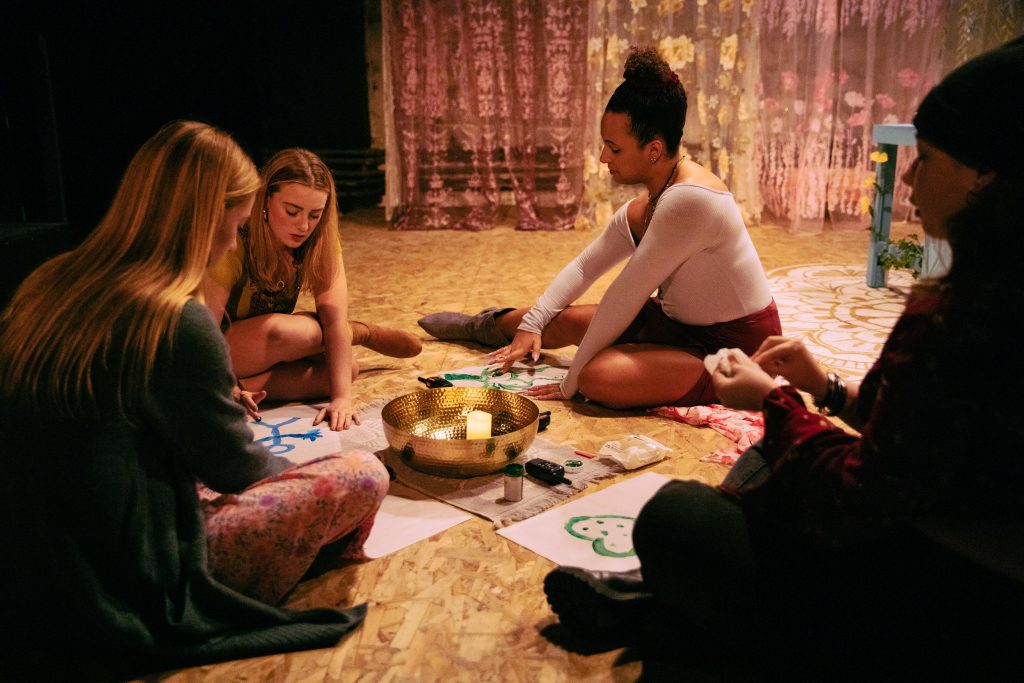
Nor is this a screed in defense of safe, predictable theatre. I’m all in favor of experimentation, in fact part of the reason we started Reviews from Underground was to promote it (hence the lab rat). But if the experimenter knows in advance that the experiment will fail, that minds will drift, it’s no longer an experiment. It’s stubbornness, or worse.
The thing to remember when we experiment as playwrights is that we are experimenting with entertainment. And there is nothing shallow about entertainment. In longer plays at least, it usually requires three-dimensional characters and a story rooted deep within them.
“Of the woman…” has the beginnings of both, and Houghton has literary talent and psychological insight to spare. Now that the play has closed, I encourage her to consider revising it further, either as a farce with less talk and more action or as a dramedy with a more developed story and less stereotypical characters. The play as it stands has a very promising premise at its core, and there were parts I thoroughly enjoyed.
“Of the woman came the beginning of sin and through her we all die” played at Medicine Show Theatre from October 3 – 26. For more information visit normalave.org

